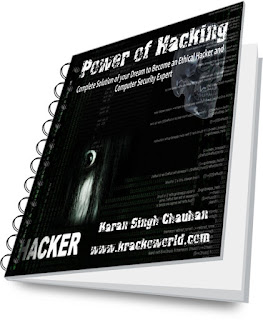How to Choose Strong Passwords To Protect Yourself From Hackers ?
|
|

What Happens To People Who Choose Weak Passwords -
If someone else obtains your passwords, they may start to use your account to see your private data, including email, your bank accounts, your phone messages; they could start to alter or destroy your files or they could take over your computer; and they might even perform illegal activities in your name -- in such cases, it is difficult to find out who the culprit is and you might get under suspicion.
The Basics -
The following guidelines will guard against someone finding out your password and using your account illegally:
- Make your password as long as possible. The longer it is, the more difficult it will be to attack the password with a brute-force search. Always use at least 6 characters in your password, at least two of which are numeric.
- Use as many different characters as possible when forming your password. Use numbers, punctuation characters and, when possible, mixed upper and lower-case letters. Choosing characters from the largest possible alphabet will make your password more secure.
- Do not use personal information in your password that someone else is likely to be able to figure out. Obviously, things like your name, phone number, and address are to be avoided. Even names of acquaintances and the like should not be used.
- Do not use words, geographical names, or biographical names that are listed in standard dictionaries.
- Never use a password that is the same as your account number.
- Do not use passwords that are easy to spot while you're typing them in. Passwords like 12345, qwerty (i.e., all keys right next to each other), or nnnnnn should be avoided.
Try This If You're Having Difficulty Selecting a Good Password -
If you are having difficulty picking a good password, one good method is to use the first letter of each word in a phrase you can easily remember. For example, "Alta is my kind of place" would be Aimkop. Another method is to intentionally use misspelled words, or words with a number or punctuation mark suffixed. Examples include: braekfast, kite276, and weather. (the period at the end is part of the password). Also, many hackers use numbers or punctuation instead of letters to do a basic encrypt of text, as in: h3llo is hello or he!!o is also hello. Don't copy any of these examples, but y0u g3t the d4ift! The more creative you are the better.
Here are some guidelines about what secure passwords should not include _
- Your name
- Your spouse's name
- Your parent's name
- Your pet's name
- Your child's name
- Names of close friends or coworkers
- Names of your favorite fantasy characters
- Your boss's name
- Anybody's name
- The name of the operating system you're using
- The hostname of your computer
- Your phone number
- Your license plate number
- Any part of your social security number
- Anybody's birth date
- Other information that is easily obtained about you
- Words such as wizard, guru, gandalf, and so on.
- Any username on the computer in any form (as is, capitalized, etc.)
- A word in the English dictionary
- A word in a foreign dictionary
- A place
- A proper noun
- Passwords of all the same letter
- Simple patterns on the keyboard, like qwerty
- Any of the above spelled backwards
- Any of the above followed or prepended by a single digit
Things to Avoid -
1.Don't use a password that is listed as an example of how to pick a good password.
2.Don't use a password that contains personal information (name, birth date, etc.)
3.Don't use words or acronyms that can be found in a dictionary.
4.Don't use keyboard patterns (asdf) or sequential numbers (1234).
5.Don't make your password all numbers, uppercase letters or lowercase letters.
6.Don't use repeating characters (aa11).
Good passwords have -
- Have both upper and lower case letters .
- Have digits and/or punctuation characters as well as letters .
- Are easy to remember, so they do not have to be written down .
- Include phonetic replacements such as iluvwindoos instead of ilovewindows.
- Are seven or eight characters long .
- Can be typed quickly, so someone else cannot look over your shoulder .
Advanced Password Strategies -
Changing passwords -- some people say that changing your password every 30 days is a good rule-of-thumb, and you should never go longer than 90 days before picking a new password. Other's disagree3. The longer you wait before changing passwords, the more difficult it will be to get used to the new one. Whatever you do, do not reuse any previous password you have used and do not write a password on a sticky piece of paper and put it near your computer. Also, please note that if someone cracks your GPG, PGP or SSH private key file password and makes a copy of your key ring, then you can change your GPG password all you want and they'll still be able to decrypt their copy of your key ring with the old password. So in the case of GPG, you should set your public key to expire and change your public key (I set mine to change every year) in addition to changing your password.
That’s it !
Join me on Google+
|
|
Respected Readers :-
|

E njoyed this post very much – So why not you Subscribe to our regular Email Updates ! and stay connected with us forever .


















Thank you very much for the information you have posted about hackers and hacking protection.
ReplyDelete@ Number plate markers
ReplyDeleteIts my pleasure to have a visitors like you.